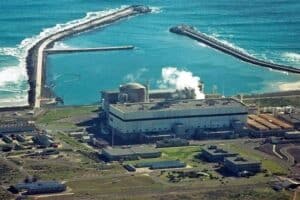The power utility is right-sizing to get its business back on track, and experts are pleased that Eskom has taken the first step to improve.

Energy experts have welcomed the news of Eskom’s plan to cull Eskom’s senior executives, hailing it as the first step toward bringing sustainability back to the public utility.
But the Democratic Alliance (DA) demanded the utility make its full restructuring plan accessible to the public and not in “piece meals”.
The power utility had agreed to streamline its executive structure and undergo the process set out by Labour Relations Act’s (LRA) Section 189, which reviewed the top level and graded roles.
Eskom spokesperson Khulu Phasiwe confirmed the retrenchments of 10 of its executives and said in an attempt to cut costs and bring about sustainability, the number of executives holding F-band graded positions would be reduced from 21 to 9.
Those not retrenched would have their positions re-graded and be placed in departments that would be merged and combined with others.
Energy expert Chris Yelland, who broke the news on social media about the “axed” executives, did not shy away from naming the executives who were scheduled to leave the employ of the power utility by December 31.
Yelland tweeted: “The following [Eskom] executives and general managers are retrenched, will depart Eskom end Dec 2018: Freddy Ndou, Ayanda Noah, Mongezi Ntsokolo, Joal Martins, Chose Choeu, Louis Maleka, Dave Nicholls, Willy Majola. More to follow…”
The following @Eskom_SA executives and general managers are retrenched, will depart Eskom end Dec 2018: Freddy Ndou, Ayanda Noah, Mongezi Ntsokolo, Joal Martins, Chose Choeu, Louis Maleka, Dave Nicholls, Willy Majola. More to follow…
— Chris Yelland (@chrisyelland) December 23, 2018
Phasiwe refused to confirm the names because “management was still in the process of finalising the matter and it would be very unprofessional and unfair to the employees in question”.
“It is important to understand that not everyone will be fired,” he said.
“While there will be those losing their jobs to retrenchments and those who will be re-graded and put in merged departments, there are also others who have voluntarily decided to leave Eskom.”
Yelland said Eskom’s move to cut 10 of its executives was a signal that it was starting the process of “right-sizing” its workforce at all levels.
He said Eskom’s financial statements would reveal that staffing costs were one of its major increasing expenses over the years, without the benefits of increased productivity.
“Eskom needs to increase its productivity. Usually, a company would work towards increasing its productivity and reducing its staffing in the long run, but in the past 10 years, Eskom has done the complete opposite by increasing its staffing, while its output productivity has declined tremendously,” said Yelland.
“While this move by Eskom is a signal that they are right-sizing, this is just one of the pressing issues Eskom needs to deal with to get its business back on track, including coal costs, interest bill, municipal debts and more.”
Energy and mining strategist Ted Blom agreed, saying although the culling of executives would “absolutely” help to improve Eskom’s dire state, it was only the first step of many more that are needed.
“There are some executives that do not understand the business of Eskom and do not add value, they are just passengers.
“We hope that with this restructuring of Eskom’s staffing, they will get rid of them.
“Although this will not save Eskom, it is the first step to secure its sustainability – and they are doing so in a humane manner and not in the butchery manner like I would have done!”
Although the DA welcomed the news, it said Eskom needed to publish a full restructuring plan to the public to provide clarification on their way forward because the “piece-meals” and snippets they were offering were not healthy at all and could cause a certain level of panic.
The DA’s Natasha Mazzone said: “We all know that Eskom used an employment agency, which allowed for certain people to gain access in the utility and allowed for state capture. We also know that it is overbloated on management and staff levels.
“Eskom as a state-owned entity can hold the country’s economy at ransom and it is therefore crucial that they keep no more secrets from us and remain transparent in every action that they take,” Mazzone said.
The new brooms
Phasiwe could not confirm the veracity of a statement by CEO Phakamani Hadebe, that was allegedly circulate among the 600 E-band managers at Eskom, informing them of the outcome of the F-band retrenchment process.
The statement makes the following announcements:
– The confirmation of Calib Cassim as the chief financial officer,
– The confirmation of Jan Oberholzer as the chief operating officer,
– Elsie Pule as group executive human resources,
– The appointment of Leo Dlamini as the general manager corporate, strategy and support,
– Segomoco Scheppers, as the group executive transmission,
– Andrew Etzinger in a new role, as general manager risk and sustainability,
– Phillip Dukashe as general manager group capital (Medupi),
– Kobus Steyn as the general manager group capital (Kusile), and
– Molefi Nkhabu as general manager audit and forensic.
Some of the executives leaving end December are:
– Group executive distribution Mongezi Ntsokolo;
– Ayanda Noah, group executive customer services,
– Joel Martins, senior general manager special projects, and
– Chose Choeu, divisional executive, corporate affairs.
For more news your way, download The Citizen’s app for iOS and Android.






